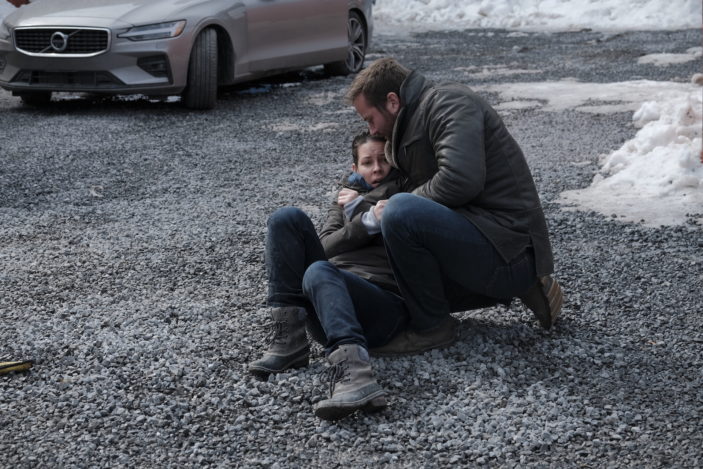
A multi-faceted drama designed in a manner not unlike Steven Soderbergh’s acclaimed, layered Traffic, Crisis‘ own multiple-strand approach to storytelling is understandable, but also can’t help but highlight the fact that director Nicholas Jarecki‘s ambition outweighs his ability to smoothly execute.
There’s much to be discussed here, with Jarecki commenting on the many facets of the healthcare system in the US, ranging from the personal effects to the corporations on a higher business level. These outlets are explored through three interconnected storylines that rarely physically overlap but consistently complement each other thematically.
After a more action-driven opening sets up the basis for the film’s crux – we’re witness to a young drug smuggler as he’s caught by the police trying to cross the Canadian border – we’re introduced to three primary figures who all have a unique connection to the substance at the core of the narrative; DEA agent Jake Kelly (Armie Hammer), who’s been working undercover for a year in a bid to take down a notorious Montreal kingpin; recovering addict Claire Reimann (Evangeline Lilly), a single mother who faces her own opioid history when her son mysteriously disappears; and Tyrone Bower (Gary Oldman), a university professor who uncovers the fatal reactions to a supposedly non-addictive painkiller, tearing himself between releasing the truth or keeping his career intact.
Given the fact that Crisis has such an impressive cast, it’s understandable why Jarecki would utilise them in the manner he has, bolstering the film as an excuse to entertain whilst delivering an important message that, thankfully, never feels too overdone. Jarecki’s not without his melodramatic tendencies though, but such characters that lean into this temperament do so to keep the interest of more artificial audiences who may be unprepared for how gritty a movie like Crisis should truly be; Kelly’s sister (Lily-Rose Depp) being an addict herself, and Bower facing off against an overly villainous pharma executive (Luke Evans) being prime examples.
The storylines dedicated to Kelly and Claire – the latter turning into a detective of sorts as she seeks to learn the truth behind her son’s disappearance – are ultimately the most generic, but they also infuse the film with an energy that keep it from surrendering to a heavier, “message” movie. Only Oldman’s plot strand feels related to the real-world crisis of addiction in the realms of business. It’s systemic and statistically shocking, but sadly it’s not detailing us much we don’t already know; although another reminder of how corrupt the industry is never hurts.
Whilst hardly a groundbreaking film, Crisis is still a bold effort from a director whose commitment to exploring his own point of view deserves commendation. It’s been nine years between projects for Jarecki – his last being 2012’s acclaimed crime drama Arbitrage – and given his evident passion for his subjects at hand, however executed, it would be a shame to wait such a length of time again to further hear what he has to say.
![]()
![]()
![]()
![]()
![]()
THREE STARS (OUT OF FIVE)
Crisis is screening in Australian theatres from March 18th, 2021
